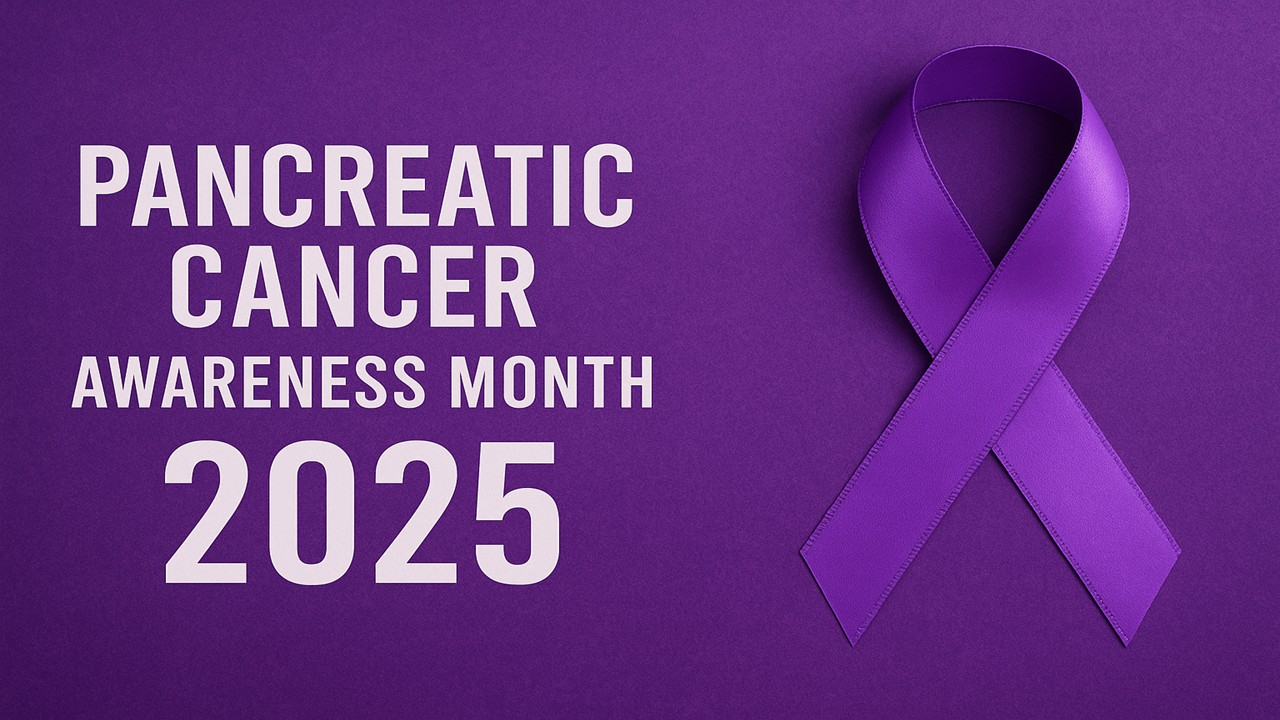The pharma and biotech sector has witnessed impressive growth over the past decade, driven by innovations and strategic partnerships. Among these, mergers and acquisitions (M&As) have played a pivotal role in reshaping the industry landscape, enabling companies to bolster their portfolios, enhance R&D capabilities and expand their global market reach. These high-stakes deals often aim to address unmet medical needs, advance therapeutic pipelines and unlock new revenue streams.
This blog highlights the top 10 pharma and biotech M&As in the past decade, showcasing some of the most impactful transactions that have shaped the industry. From Bristol-Myers Squibb’s monumental acquisition of Celgene to Pfizer’s recent purchase of Seagen, these deals illustrate the strategies and ambitions driving innovation in life sciences.
1. Bristol-Myers Squibb’s Acquisition of Celgene
Deal value: $74 billion
Announced: January 3, 2019
Closed: November 20, 2019
Bristol-Myers Squibb acquired Celgene Corporation in 2019 in a cash-and-stock transaction valued at $74 billion. This strategic acquisition significantly enhanced Bristol-Myers Squibb’s portfolio, particularly in oncology, immunology, inflammation and cardiovascular disease.
Key benefits included the addition of Celgene’s blockbuster drug Revlimid (lenalidomide), a cornerstone of its oncology portfolio, and access to innovative CAR-T therapies such as Abecma (idecabtagene vicleucel).
The acquisition also strengthened Bristol-Myers Squibb’s financial outlook, with Celgene contributing a substantial portion of revenue post-merger. While the deal required regulatory divestitures, including the sale of Otezla (apremilast) to Amgen for $13.4 billion, it marked one of the largest pharmaceutical mergers ever and cemented Bristol-Myers Squibb’s position as a leading player in oncology and immunology.
2. Actavis’ Acquisition of Allergan
Deal value: $70.5 billion
Announced: November 17, 2014
Closed: March 17, 2015
In one of the largest pharmaceutical mergers of the decade, Actavis acquired Allergan in a cash-and-stock transaction valued at $70.5 billion. This strategic move transformed Actavis into one of the largest pharma companies globally, with a strong presence across branded, generic and over-the-counter (OTC) medicines. Following the merger, Actavis rebranded itself as Allergan, leveraging the strong recognition of Allergan’s brand.
Key drivers of the acquisition included Allergan’s robust product portfolio, particularly in ophthalmology, neuroscience and aesthetics. Blockbuster products like Botox (botulinum toxin) and Restasis (cyclosporine) provided Actavis with high-margin, branded revenue streams that complemented its existing generic drug business.
3. AbbVie’s Acquisition of Allergan
Deal value: $63 billion
Announced: June 25, 2019
Closed: May 8, 2020
AbbVie acquired Allergan in a cash-and-stock transaction valued at $63 billion. This acquisition aimed to diversify AbbVie’s revenue streams and reduce its dependence on its flagship drug, Humira (adalimumab), which was facing patent expiration and increasing biosimilar competition.
Key benefits of the deal included the addition of Allergan’s leading portfolio in aesthetics, neuroscience, eye care and gastroenterology. Allergan’s flagship products, such as Botox (onabotulinumtoxinA) and Juvederm, significantly expanded AbbVie’s therapeutic reach into the rapidly growing medical aesthetics market. Additionally, the acquisition brought Allergan’s pipeline of investigational therapies in neuroscience and women’s health, complementing AbbVie’s existing expertise.
The integration of Allergan strengthened AbbVie’s global commercial capabilities and operational scale, enhancing its market position in both established and emerging therapeutic areas. The deal created one of the world’s largest pharma companies by revenue and reinforced AbbVie’s commitment to delivering innovative treatments across multiple medical specialties.
4. Takeda’s Acquisition of Shire
Deal value: $62 billion
Announced: May 8, 2018
Closed: January 8, 2019
Takeda, a Japan-based global pharma company, completed its acquisition of Shire in a cash-and-stock transaction valued at $62 billion. This acquisition positioned Takeda as a leading biopharma company with a strong presence in rare diseases, gastroenterology, neuroscience and immunology. The deal was the largest ever by a pharmaceutical company headquartered in Japan and significantly expanded Takeda’s footprint in the US and European markets.
Key benefits of the acquisition included the addition of Shire’s portfolio of treatments for rare diseases, including its leading therapies for hematology, immunology and genetic disorders. Notable products such as Xiidra (lifitegrast) for dry eye disease and Adynovate (antihemophilic factor) for hemophilia bolstered Takeda’s presence in specialty care. The acquisition also provided Takeda with expertise in plasma-derived therapies, further enhancing its capabilities in treating rare and complex conditions.
The integration of Shire strengthened Takeda’s R&D pipeline, increasing its focus on innovative medicines and transformative therapies. Despite the significant debt incurred to finance the deal, Takeda remained committed to driving long-term growth and innovation while optimizing its global operations to achieve cost synergies.
This acquisition marked a strategic shift for Takeda, enhancing its global competitiveness and reinforcing its mission to deliver better health for patients worldwide through a broader, more diversified portfolio of specialty and rare disease treatments.
5. Pfizer’s Acquisition of Seagen
Deal value: $43 billion
Announced: March 13, 2023
Closed: December 14, 2023
Pfizer acquired Seagen in a cash transaction valued at $43 billion. This acquisition strengthened Pfizer’s oncology portfolio by adding Seagen’s innovative antibody-drug conjugate (ADC) technology, positioning the company at the forefront of targeted cancer therapies. The deal aligned with Pfizer’s strategic focus on advancing precision medicine and expanding its presence in the high-growth oncology market.
Key benefits of the acquisition included the addition of Seagen’s portfolio of approved and investigational ADCs, such as Adcetris (brentuximab vedotin) for lymphoma and Padcev (enfortumab vedotin-ejfv) for bladder cancer. Seagen’s pipeline also complemented Pfizer’s existing oncology assets, providing opportunities for combination therapies and next-generation cancer treatments.
The acquisition significantly enhanced Pfizer’s R&D capabilities in oncology, enabling the company to develop more targeted and effective therapies for various cancers, including solid tumors and hematologic malignancies. It also reinforced Pfizer’s position in the competitive oncology landscape, where it aims to deliver groundbreaking treatments to address unmet medical needs.
With the integration of Seagen, Pfizer expects to accelerate innovation, expand its oncology market share and achieve substantial revenue growth. The acquisition highlights Pfizer’s commitment to investing in cutting-edge cancer treatments and building a robust oncology franchise that leverages the potential of ADCs to improve cancer care.
6. AstraZeneca’s Acquisition of Alexion
Deal value: $39 billion
Announced: December 12, 2020
Closed: July 21, 2021
AstraZeneca acquired Alexion Pharmaceuticals in a cash-and-stock transaction valued at $39 billion. This strategic acquisition marked AstraZeneca’s expansion into the rare disease space, complementing its existing portfolio with Alexion’s leading expertise in immunology and complement biology.
Key benefits of the acquisition included the addition of Alexion’s flagship products, such as Soliris (eculizumab) and Ultomiris (ravulizumab-cwvz), both of which are groundbreaking therapies for complement-mediated rare diseases, including paroxysmal nocturnal hemoglobinuria (PNH) and atypical hemolytic uremic syndrome (aHUS). These high-margin, innovative therapies gave AstraZeneca a strong foothold in the rare disease market and a steady revenue stream.
Beyond immediate revenue growth, the acquisition provided AstraZeneca with Alexion’s promising pipeline of next-generation therapies, further enhancing its R&D capabilities in immunology and rare diseases. The deal also allowed AstraZeneca to diversify its therapeutic focus beyond its traditional strengths in oncology and respiratory diseases, positioning it for long-term growth in the rare disease market.
The acquisition reinforced AstraZeneca’s commitment to addressing unmet medical needs and delivering life-changing medicines to patients worldwide. It also opened new market opportunities across geographies, leveraging AstraZeneca’s global commercial infrastructure to expand the reach of Alexion’s rare disease portfolio.
7. Johnson & Johnson’s Acquisition of Actelion
Deal value: $30 billion
Announced: January 26, 2017
Closed: June 16, 2017
Johnson & Johnson (J&J) acquired Actelion in a cash transaction valued at $30 billion. This strategic acquisition expanded J&J’s capabilities in the high-growth pulmonary arterial hypertension (PAH) market, further strengthening its position in the sector.
Key benefits of the acquisition included the addition of Actelion’s blockbuster PAH drugs, such as Tracleer (bosentan), Opsumit (macitentan), and Uptravi (selexipag), which significantly bolstered J&J’s pharmaceutical portfolio. These therapies provided a strong foothold in the specialty cardiovascular market, offering innovative treatments for patients with life-threatening conditions.
As part of the acquisition, J&J established Idorsia Ltd., a new standalone company focused on discovering and developing novel compounds derived from Actelion’s early-stage R&D pipeline. J&J retained an equity stake in Idorsia, ensuring continued collaboration on potential future therapies.
The acquisition aligned with J&J’s long-term strategy to expand its presence in rare diseases and specialty pharmaceuticals, diversifying its revenue streams and enhancing its global commercial capabilities. With Actelion’s strong market presence and innovative therapies, J&J reinforced its commitment to delivering differentiated, life-changing treatments for patients with unmet medical needs.
8. Amgen’s Acquisition of Horizon Therapeutics
Deal value: $27.8 billion
Announced: December 12, 2022
Closed: October 6, 2023
Amgen acquired Horizon Therapeutics in a cash transaction valued at $27.8 billion. This acquisition significantly strengthened Amgen’s rare disease portfolio and expanded its capabilities in immunology and inflammation.
Key benefits of the acquisition included the addition of Horizon’s leading rare disease therapies, such as Tepezza (teprotumumab-trbw) for thyroid eye disease, Krystexxa (pegloticase) for chronic gout, and Uplizna (inebilizumab-cdon) for neuromyelitis optica spectrum disorder (NMOSD). These high-value, first-in-class therapies provided Amgen with immediate access to markets with high unmet medical needs.
The acquisition aligned with Amgen’s long-term growth strategy by diversifying its portfolio and reducing reliance on legacy products facing biosimilar competition. Horizon’s established commercial infrastructure and specialty care expertise complemented Amgen’s global reach, creating opportunities for further geographic expansion.
The integration of Horizon also reinforced Amgen’s commitment to advancing therapies in hard-to-treat conditions while leveraging its biologics expertise to further develop Horizon’s pipeline. The deal positioned Amgen as a leader in rare diseases and inflammatory conditions, enhancing its revenue potential and bolstering its innovation pipeline in specialty markets.
9. AbbVie’s Acquisition of Pharmacyclics
Deal value: $21 billion
Announced: March 4, 2015
Closed: May 26, 2015
AbbVie acquired Pharmacyclics in a cash-and-stock transaction valued at $21 billion. This strategic acquisition strengthened AbbVie’s oncology portfolio and provided access to one of the most promising cancer treatments in the market.
Key benefits of the acquisition included the addition of Imbruvica (ibrutinib), a groundbreaking Bruton’s tyrosine kinase (BTK) inhibitor used for the treatment of multiple hematologic cancers, including chronic lymphocytic leukemia (CLL), mantle cell lymphoma (MCL) and Waldenström’s macroglobulinemia. Imbruvica had already secured multiple regulatory approvals and demonstrated strong commercial potential, with peak sales expectations exceeding several billion dollars annually.
The acquisition complemented AbbVie’s existing oncology pipeline and aligned with its strategic focus on diversifying beyond its blockbuster immunology drug, Humira (adalimumab), which was facing impending biosimilar competition. Pharmacyclics’ deep oncology expertise and research capabilities provided AbbVie with a solid foundation for expanding its presence in the rapidly evolving hematologic cancer market.
By integrating Pharmacyclics, AbbVie aimed to leverage its global commercial infrastructure to accelerate the growth of Imbruvica and explore combination therapies to further solidify its market leadership in oncology. The acquisition also enhanced AbbVie’s ability to compete in the cancer treatment landscape, reinforcing its commitment to delivering innovative solutions for patients with difficult-to-treat diseases.
10. Gilead Sciences’ Acquisition of Immunomedics
Deal value: $21 billion
Announced: September 13, 2020
Closed: October 23, 2020
Gilead Sciences, a leading biopharma company known for its expertise in antiviral therapies, acquired Immunomedics in a cash transaction valued at $21 billion. This strategic acquisition significantly strengthened Gilead’s oncology portfolio and provided access to Immunomedics’ ADC technology.
Key benefits of the acquisition included the addition of Trodelvy (sacituzumab govitecan-hziy), an FDA-approved, first-in-class ADC for the treatment of metastatic triple-negative breast cancer (mTNBC), a highly aggressive form of breast cancer with limited treatment options. Trodelvy’s unique mechanism of action and demonstrated clinical efficacy positioned it as a potential blockbuster therapy, with further development underway in additional cancer indications such as bladder and lung cancer.
The acquisition aligned with Gilead’s long-term strategy to diversify beyond its core antiviral business and build a strong presence in oncology. By integrating Immunomedics, Gilead gained access to a robust ADC platform that could be leveraged to develop next-generation targeted cancer therapies. The transaction also expanded Gilead’s capabilities in solid tumor treatment, complementing its existing pipeline of immuno-oncology assets.
The deal reinforced Gilead’s commitment to addressing high unmet medical needs in oncology and accelerating the delivery of transformative cancer treatments. With Trodelvy already achieving strong commercial traction and additional clinical trials in progress, the acquisition positioned Gilead as a key player in the growing ADC market and enhanced its competitive edge in oncology.












Join or login to leave a comment
JOIN LOGIN